Is Your PL/SQL Code as Good as You Think? Scan it with SQLcl CODESCAN, please.
 Rafal Grzegorczyk
Rafal Grzegorczyk
When working with applications based on Oracle Database (like APEX), ensuring the quality of your PL/SQL code is essential. But how can you quickly check for issues?
The answer is the SQLcl CODESCAN. A FREE tool that scans your database objects for coding standard violations and performance problems.
What do you need?
Latest SQLcl installed (24.4 at the moment of this blog post). How to install it → here. Official documentation here.
Objects you wish to scan exported, preferred .sql format (I used
project exportcommand to export my HR schema). How to use project export → here.
Run CODESCAN
Ok, I have exported all my HR schema objects. Obviously, some of them are not PL/SQL, but I just want to scan everything. Especially for this blog, I’ve put some bad code into hr_job_pkg_body.sql
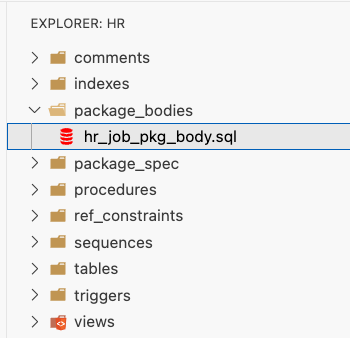
- Go to /HR/ schema objects locations
Run SQLcl (you don’t need to be connected to any database!)
sql /nolog
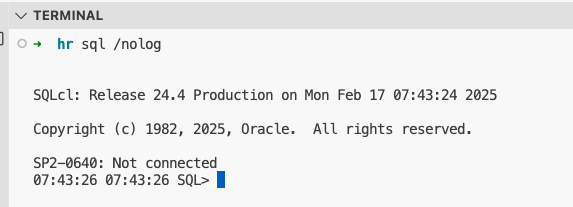
- Run CODESCAN:
codescan -format txt - output hr_scan.txt
You can have results in JSON format, specify a path as a parameter or ignore some rules - you can read more about it here.
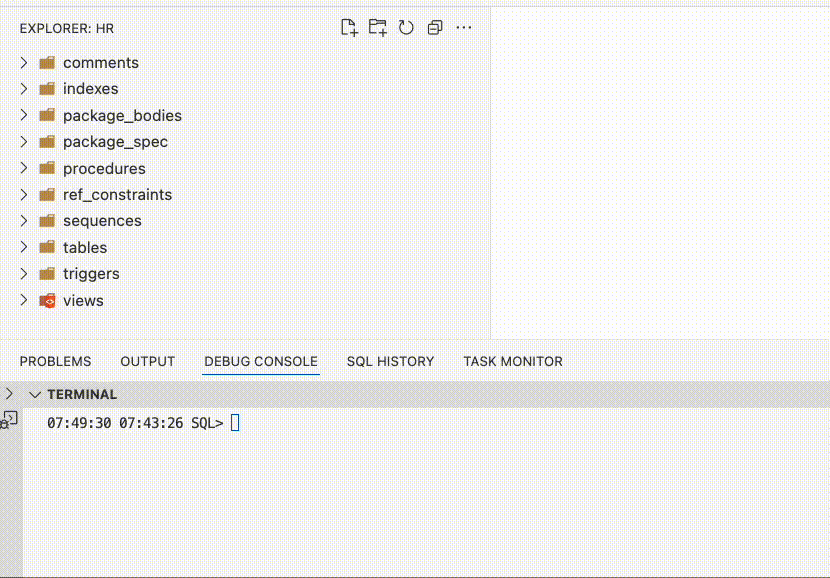
CODESCAN results & Rules checked
SQLcl CODESCAN scanned much of my code, including packages, procedures, functions and views.
Numbers in brackets are (Line number, column)
All rules starting with “G-” are rules you may know from the Trivadis Guidelines, and those that start with “PSR-” are performance issues stated in Oracle’s documentation.
***** /hr/procedures/secure_dml.sql
*** 2 distinct warnings
Warning (1,19): G-7310: Avoid standalone procedures – put your procedures in packages
Warning (5,34): G-5050: Avoid use of the RAISE_APPLICATION_ERROR built-in procedure with a hard-coded 20nnn error number or hard-coded message
***** /hr/procedures/pkg_job_history.sql
*** 6 distinct warnings
Warning (1,19): G-7310: Avoid standalone procedures – put your procedures in packages
Warning (2,5): G-7160: Always explicitly state parameter mode
Warning (3,5): G-7160: Always explicitly state parameter mode
Warning (4,5): G-7160: Always explicitly state parameter mode
Warning (5,5): G-7160: Always explicitly state parameter mode
Warning (6,5): G-7160: Always explicitly state parameter mode
***** /hr/procedures/add_job_history.sql
*** 6 distinct warnings
Warning (1,19): G-7310: Avoid standalone procedures – put your procedures in packages
Warning (2,5): G-7160: Always explicitly state parameter mode
Warning (3,5): G-7160: Always explicitly state parameter mode
Warning (4,5): G-7160: Always explicitly state parameter mode
Warning (5,5): G-7160: Always explicitly state parameter mode
Warning (6,5): G-7160: Always explicitly state parameter mode
***** /hr/package_bodies/hr_job_pkg_body.sql
*** 9 distinct warnings
Warning (4,9): G-7160: Always explicitly state parameter mode
Warning (5,9): G-7160: Always explicitly state parameter mode
Warning (6,9): G-7160: Always explicitly state parameter mode
Warning (7,9): G-7160: Always explicitly state parameter mode
Warning (8,9): G-7160: Always explicitly state parameter mode
Warning (11,9): G-1030: Avoid defining variables that are not used
Warning (26,13): G-3145: Avoid using SELECT * directly from a table or view
Warning (27,9): G-5060: Avoid unhandled exceptions
Warning (31,13): PSR-103: Too many values in IN-LIST filter may prevent the optimizer from finding the more efficient plan
***** /hr/package_spec/hr_job_pkg_spec.sql
*** 5 distinct warnings
Warning (4,9): G-7160: Always explicitly state parameter mode
Warning (5,9): G-7160: Always explicitly state parameter mode
Warning (6,9): G-7160: Always explicitly state parameter mode
Warning (7,9): G-7160: Always explicitly state parameter mode
Warning (8,9): G-7160: Always explicitly state parameter mode
***** /hr/triggers/secure_employees.sql
*** 1 distinct warnings
Warning (2,5): G-7730: Avoid multiple DML events per trigger
***** /hr/views/emp_details_view.sql
*** 1 distinct warnings
Warning (37,9): G-3130: Try to use ANSI SQL-92 join syntax
Bonus
Interactive feedback while you’re writing your code
Ensure the CODESCAN feature is ON by typingset codescan on
Type some code:
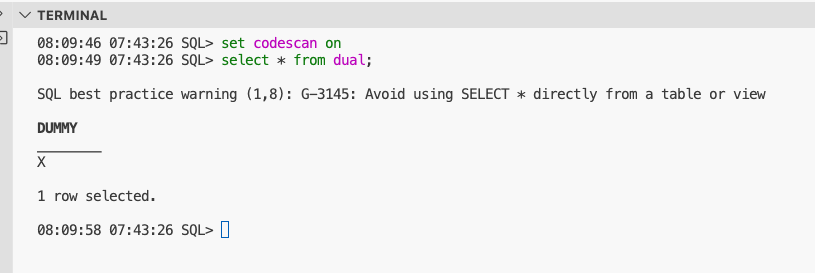
Unofficial extension for SQLcl Codescan by Niko Sperat
I found this in the VS Code extensions marketplace, and I love it!
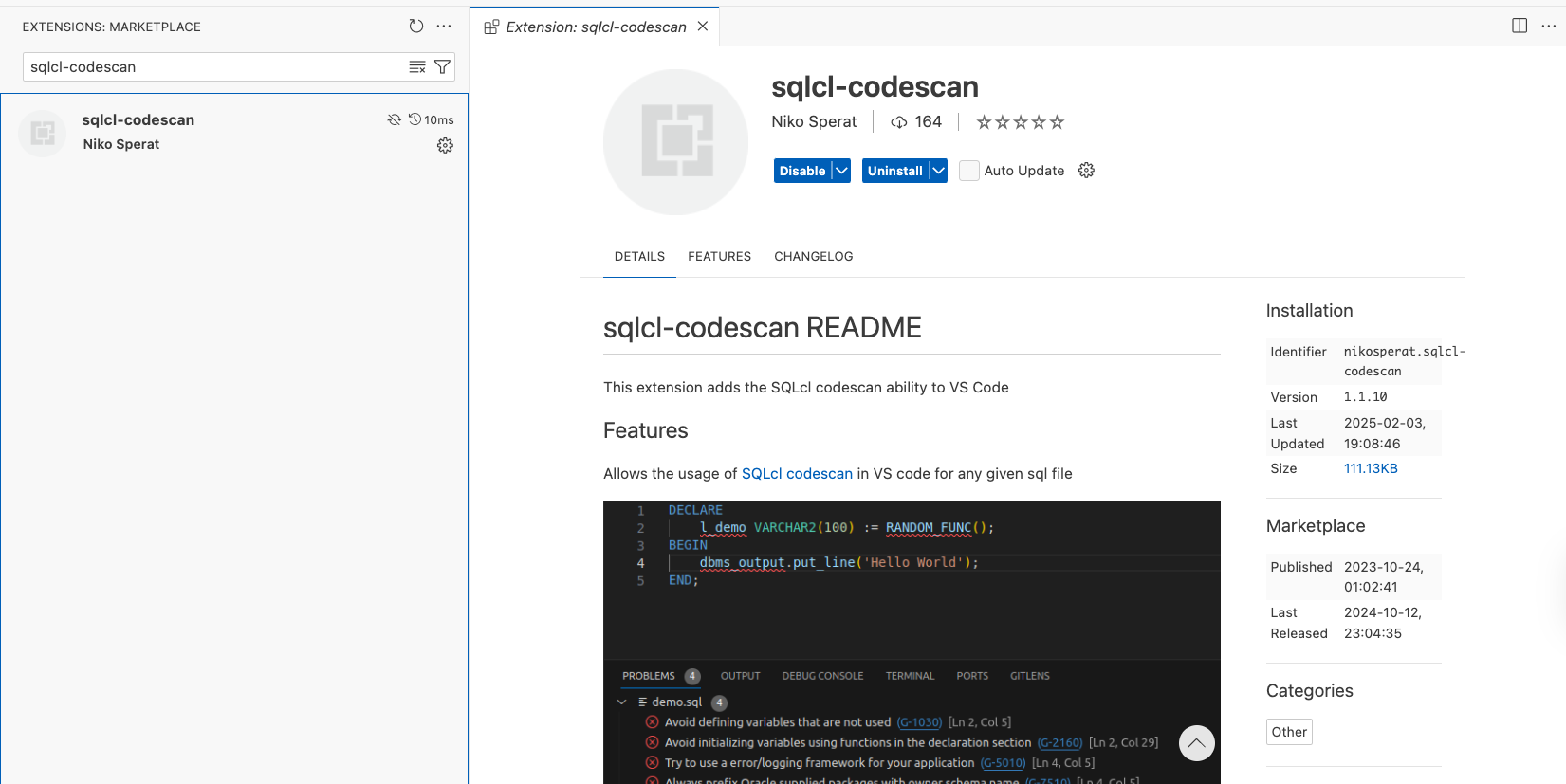
Now, I can edit my PL/SQL in VS Code, and this extension on LIVE shows me all the bad things in my code.
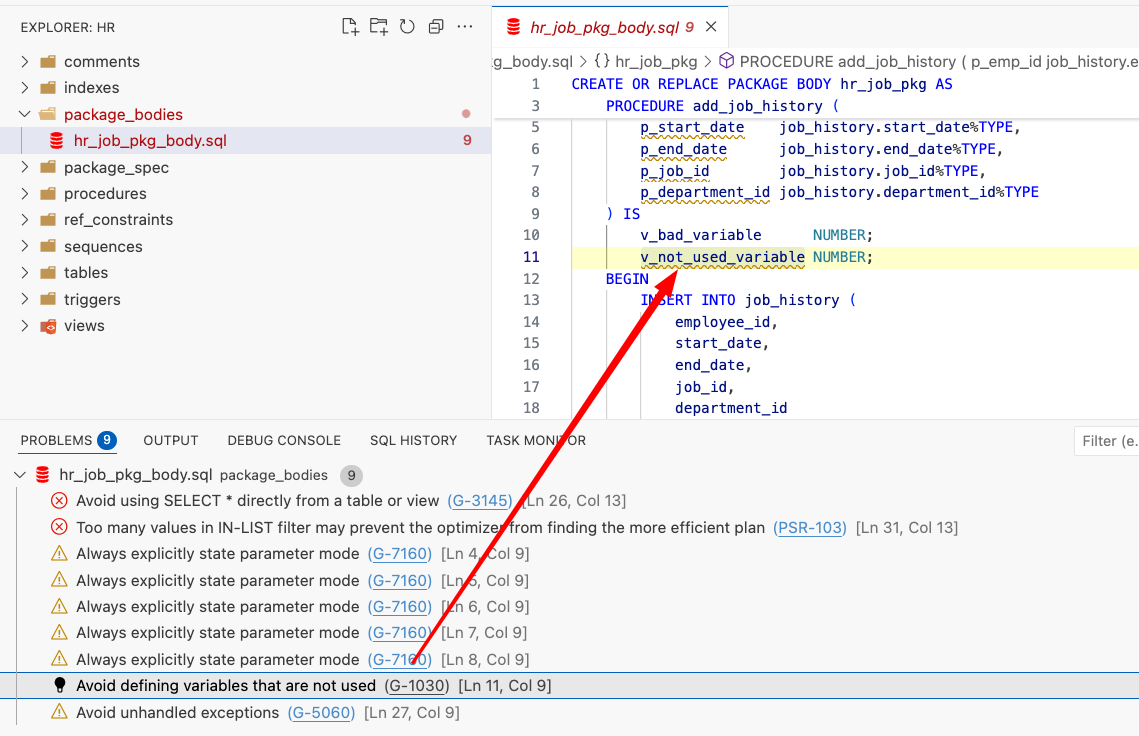
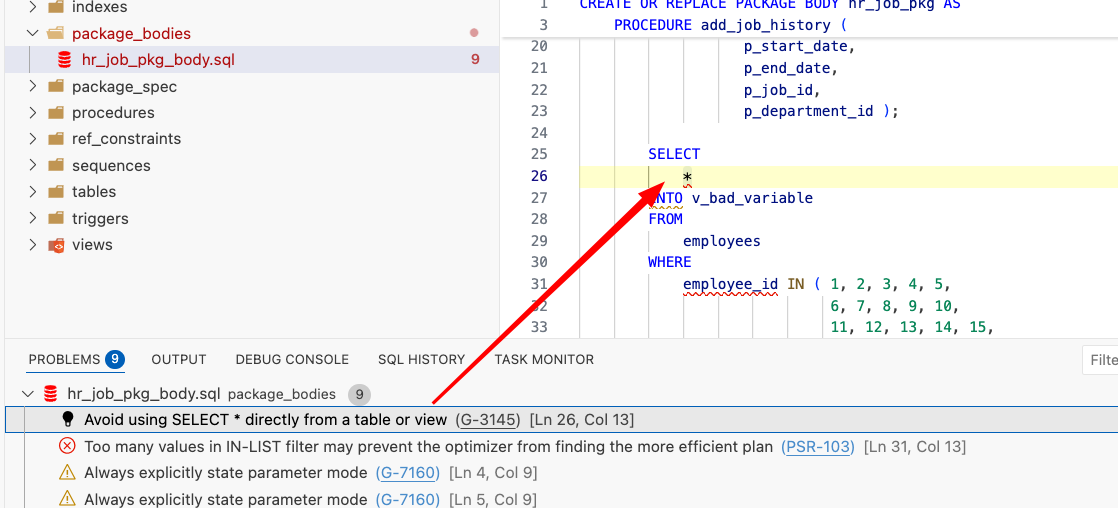
Summary
I don’t want you to encounter many issues in your code, but we are all learning constantly :)
Subscribe to my newsletter
Read articles from Rafal Grzegorczyk directly inside your inbox. Subscribe to the newsletter, and don't miss out.
Written by

Rafal Grzegorczyk
Rafal Grzegorczyk
Oracle APEX & PL/SQL Developer with 10 years of experience in IT, including financial systems for government administration, energy, banking and logistics industry. Enthusiast of database automation. Oracle ACE Associate. Certified Liquibase database versioning tool fan. Speaker at Kscope, APEX World, SOUG, HrOUG, POUG and DOAG. Likes swimming in icy cold lakes in winter and playing basketball.